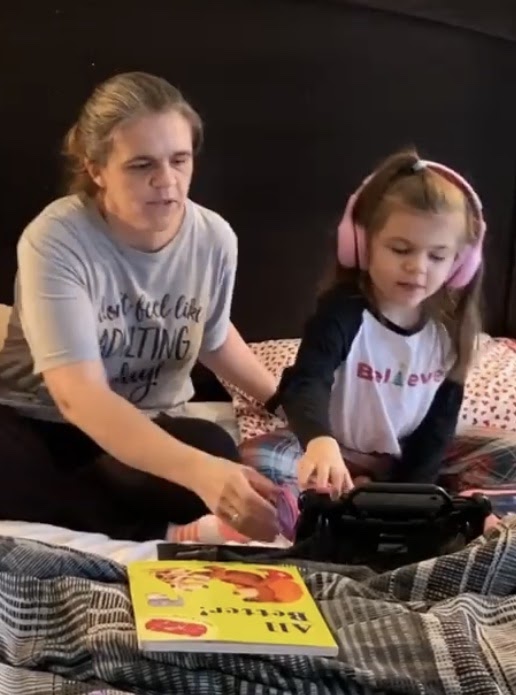How to Support Siblings of Special Needs Kids

Written on April 23, 2020
Have you ever heard “It’s not fair; he gets all the attention” or “You never have time for me?” Are you dealing with siblings of special needs kids that are acting out or misbehaving as a means of getting your attention? Do you ever refrain from disciplining them out of guilt? If you have experienced any of these reactions… you are not alone! This dynamic can happen in neurotypical families but in families with special needs children, it may be even more prevalent. From therapy and doctor appointments, IEP meetings, and your child’s dependence on you for daily needs it may be challenging to find a balance for the whole family. The following strategies may help get your family back on track!
#1 Feelings, feelings, and more feelings!
It’s important to encourage all your children, not just the siblings of special needs kids, to share their feelings and equally important to let them know that their feelings are valid; no right or wrong. Sometimes children have a difficult time processing what they are feeling. As parents, we can teach them this by being a model for them. E.g. “Mommy is feeling frustrated because I didn’t get to finish my housework today.”, or “You seem disappointed because your brother ruined your lego creation.”
Recognizing and verbalizing feelings can be a challenge for kids and adults.
Many children learn well from a visual aid. There are many games on the market that teach feelings such as Emotion-oes mood flipbooks and photo feelings decks. Get creative with some fun activities you can do together such as drawing faces or practicing making faces.
#2 Empower your child to be a “leader” for their special needs sibling.
Studies have shown that children are capable of learning a great deal when they have a peer model. Who better to do this than a sibling? Providing guided opportunities for siblings to take on a “leader” or “model” role can also foster a loving and closer relationship between them. It is important to give your child the choice rather than forcing the “leader” role upon them. This provides the opportunity for a more valuable role to be established by the sibling. At BDI Playhouse, we strongly value sibling relationships and often include siblings of special needs kids in our therapy to model play, language, and motor skills and to enhance relationships.
#3 Create a “toolbox” of special activities
Activity bags/task boxes can be created ahead of time and used on special occasions (e.g. fine motor boxes, sorting, matching, counting, sensory play, etc) with siblings. Try engaging your child in a previously prepared activity while you assist your other child in tele-therapy or e-learning activities. When my children were little they loved to build forts in their bedrooms for a unique play place. Encourage this creativity with your children. While possibly messy, this activity will provide hours of enjoyment for the kids and a perfect time for you to support your other children OR time for YOURSELF.
#4 Schedule special bonding time or special routines. Remember the quality vs. quantity. Small gestures can go a long way. Some of my family’s favorites were… early morning walks, surprise snuggles with mom/dad in the morning, reading together in a special place, and individualized bedtime routines. Kids thrive on this special bonding!
Ever feel like your child misbehaves because their special needs sibling “gets away with it?” As a parent, we have the choice of feeling guilty about different expectations for different children or empowering those siblings to grow up understanding that we are all unique and have different capabilities. Giving in to misbehaviors can set the stage for increased negative behaviors, so consistency is key! Children depend on the structure and need stability within expectations, especially when things become challenging.
At BDI Playhouse, our Speech and Occupational therapists would love to work alongside you to help build a flourishing relationship between your children and to help you optimize your time with all your kids. Our Occupational therapists can provide assistance with the management of daily routines for the family, foster positive client interaction between siblings, and facilitate increased independence of daily living skills for your special needs child, to allow more focus on siblings’ needs. Our Speech-language Pathologists can help to grow social and language skills for your child to help foster improved relationships with the whole family. Contact BDI Playhouse to set up a free consultation.
By Sheila Trout M.A.; CCC-SLP Speech-Language Pathologist at BDI Playhouse Children’s Therapy
